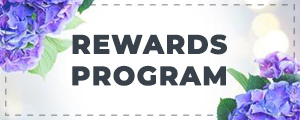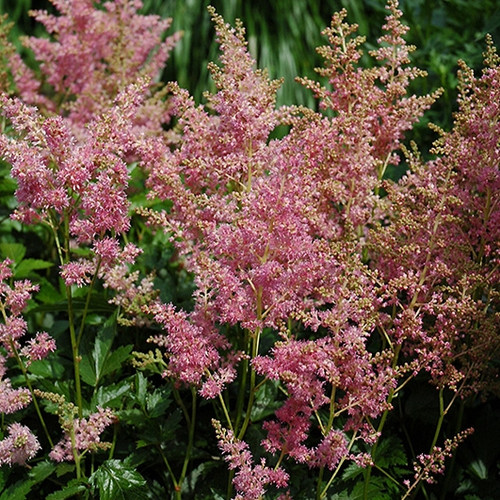| Astilbe chinensis 'Milk and Honey' |
USDA Zone: 3-9 |
Milk and Honey Astilbe has masses of beautiful plumes of shell pink flowers at the ends of the stems from mid to late summer, which are most effective when planted in groupings. The flowers are excellent for cutting. Its ferny compound leaves remain dark green in colour throughout the season.
Soft, airy, creamy plumes turn to light pink as they age, rising above glossy leaves; perfect in a shady spot with dappled light; prefers moisture so water regularly for abundant flowers and nice foliage.
Milk and Honey Astilbe is recommended for the following landscape applications;
- Mass Planting
- General Garden Use
- Container Planting
Common Name: Hybrid Astilbe, False Spirea
|
Key Feature
|
Light Needs | Landscape Uses |
 |
 |
|
|
|
|
| More About Milk and Honey Astilbe |
| Height: 16-30 inches |
Spread: 18-20 inches |
Flower Colour: Creamy White Shades |
|
Milk and Honey Astilbe does best in partial shade to shade. It requires an evenly moist well-drained soil for optimal growth. It is very fussy about its soil conditions and must have rich, acidic soils to ensure success, and is subject to chlorosis (yellowing) of the foliage in alkaline soils. It is somewhat tolerant of urban pollution, and will benefit from being planted in a relatively sheltered location. Consider applying a thick mulch around the root zone over the growing season to conserve soil moisture. Milk and Honey Astilbe is a fine choice for the garden, but it is also a good selection for planting in outdoor pots and containers. With its upright habit of growth, it is best suited for use as a 'thriller' in the 'spiller-thriller-filler' container combination; plant it near the center of the pot, surrounded by smaller plants and those that spill over the edges. Note that when grown in a container, it may not perform exactly as indicated on the tag - this is to be expected. Also note that when growing plants in outdoor containers and baskets, they may require more frequent waterings than they would in the yard or garden. Be aware that in our climate, most plants cannot be expected to survive the winter if left in containers outdoors, and this plant is no exception. NOTE: Some flowers and plants may be harmful or poisonous to people or pets if touched or ingested. If you require more information before placing an order, please let us know in advance. |









